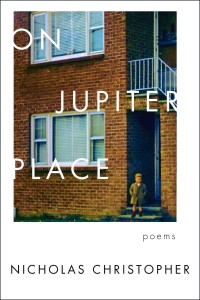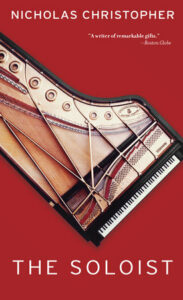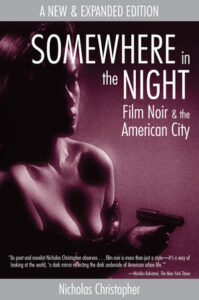Nicholas Christopher
Nicholas Christopher is the author of seventeen books: eight previous volumes of poetry, most recently, Crossing the Equator: New & Selected Poems; six novels, including The Soloist, Veronica, and A Trip to the Stars; a nonfiction book, Somewhere in the Night: Film Noir & the American City; and a novel for children, The True Adventures of Nicolò Zen. He lives in New York City.
Subscribe to our newsletter for news & events from Counterpoint Press.
Books
On Jupiter Place
Poems
Best known as a novelist, Nicholas Christopher began publishing poems in The New Yorker in his twenties, and has published eight collections, praised over the years by poets and critics as being among America's most important poets. Reviewing his selected poems, Crossing the Equator, published eight years ago, The Washington Post said, "To read his richly honed and sensuous work, which has so much tensile strength, is to visit other worlds and then to return to our own disturbed by time, but also refreshed and reawakened."On Jupiter Place is his first book since that collection, and it contains material that is perhaps his most personal, autobiographical and intimate work yet. Beautifully made and carefully constructed, one might be reminded of Keats thinking that his poems were "little machines" of feeling. And everywhere in this book are moments of disorientation, where the wonder of the poem transcends understanding and leads its readers back into themselves slightly startled and richer for the effort. As Merwin has written, "his poems are vibrant with light and the surprise of recognition. He shows us again and again the luminous nature of the familiar."
The Washington Post, reviewing his Crossing the Equator: New & Selected Poems, reported that "Nicholas Christopher is a fabulist...His fiction often puts me in mind of Jorge Luis Borges and Italo Calvino, two time–travelers who are his great precursors. His poetry tends to build on the work of Wallace Stevens, Elizabeth Bishop and James Merrill. Like them, he has a taste for the exotic, the faraway, the displaced, the imaginary.
The Soloist
A Novel
At thirty–four, piano soloist Max Randal has hit a wall. It's been four years since his last live performance, and his manager is intent on revitalizing his career with a big concert at Carnegie Hall. As if that wouldn't be enough for Max to worry about, as he struggles to prepare, the ghosts of his failed relationships have come to haunt him — his first ex–wife is dying, his second ex–wife wants to get back together, the mother of his child has taken off for Europe and unexpectedly left him to care for their nine–year–old, and his present girlfriend now wants to get serious. Believe it or not, the plot only gets thicker.Merging dozens of characters and events into a seamless narrative, gifted novelist and poet Nicholas Christopher delivers a compelling tale. Like an exhilarating performance, The Soloist takes you on a brilliant adventure that resonates even once it's over.
Somewhere in the Night
Film Noir and the American City
Starting with the classic Out of the Past, Christopher takes us on the grand tour of the great film noirs. With style and humor, he identifies the genre's central motif — "The city as labyrinth is key to entering the psychological and aesthetic framework of the film noir" — and goes on to analyze more than three hundred films from 1940 to the present. Imbuing the language of film with the lyricism so praised in his novels, Christopher draws from his vast knowledge of literature to explore the genre's numerous influences. (Although it was a French critic who coined the term "film noir," Christopher argues that Americans had been shooting films in the genre years even before the term was invented.) Citing cultural, social, and historical influences from all over the world, he effortlessly guides us through the labyrinth.This edition includes a new afterword and expanded filmography, making this bold and thoroughly researched book more relevant and comprehensive than ever.

Catapult | Counterpoint | Soft Skull
20 Jay Street #704
Brooklyn, NY 11201
646.926.0805 | contact@catapult.co







